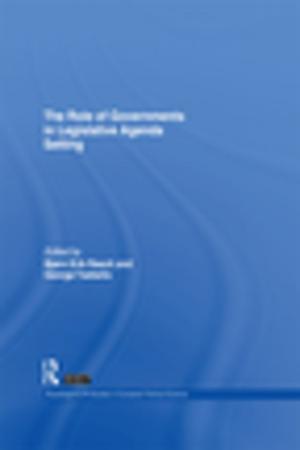Basic Desert, Reactive Attitudes and Free Will
Nonfiction, Religion & Spirituality, Philosophy, Ethics & Moral Philosophy| Author: | ISBN: | 9781317362951 | |
| Publisher: | Taylor and Francis | Publication: | October 2, 2017 |
| Imprint: | Routledge | Language: | English |
| Author: | |
| ISBN: | 9781317362951 |
| Publisher: | Taylor and Francis |
| Publication: | October 2, 2017 |
| Imprint: | Routledge |
| Language: | English |
Basic Desert, Reactive Attitudes and Free Will addresses the issue of whether we can make sense of the widespread conviction that we are morally responsible beings. It focuses on the claim that we deserve to be blamed and punished for our immoral actions, and how this claim can be justified given the philosophical and scientific reasons to believe that we lack the sort of free will required for this sort of desert.
Contributions to the book distinguish between, and explore, two clusters of questions. The first asks what it is to deserve to be harmed or benefitted. What are the bases for desert – actions, good character, bad character, the omission of good character traits? The second cluster explores the disagreement between compatabilists and incompatibilists surrounding the nature of desert. Do we deserve to be harmed, benefitted, or judged, even if we lack the ability to act differently, and if we do not, what effect does this have on our everyday actions?
Taken in full, this book sheds light on the notion of desert implicated in our practice of holding each other morally responsible. This book was originally published as a special issue of Philosophical Explorations.
Basic Desert, Reactive Attitudes and Free Will addresses the issue of whether we can make sense of the widespread conviction that we are morally responsible beings. It focuses on the claim that we deserve to be blamed and punished for our immoral actions, and how this claim can be justified given the philosophical and scientific reasons to believe that we lack the sort of free will required for this sort of desert.
Contributions to the book distinguish between, and explore, two clusters of questions. The first asks what it is to deserve to be harmed or benefitted. What are the bases for desert – actions, good character, bad character, the omission of good character traits? The second cluster explores the disagreement between compatabilists and incompatibilists surrounding the nature of desert. Do we deserve to be harmed, benefitted, or judged, even if we lack the ability to act differently, and if we do not, what effect does this have on our everyday actions?
Taken in full, this book sheds light on the notion of desert implicated in our practice of holding each other morally responsible. This book was originally published as a special issue of Philosophical Explorations.















